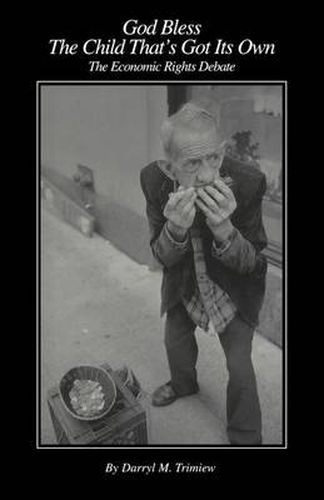Readings Newsletter
Become a Readings Member to make your shopping experience even easier.
Sign in or sign up for free!
You’re not far away from qualifying for FREE standard shipping within Australia
You’ve qualified for FREE standard shipping within Australia
The cart is loading…






Darryl Trimiew examines current and historical debates regarding economic rights. What is our obligation to the poor, and how are economic rights related to civil and political rights? Beginning with the debate that surrounded President Jimmy Carter’s support of economic rights, Trimiew reviews and answers the objections of those who would deny economic rights, and in the process articulates the positions of such figures as Henry Shue, Alan Gewirth, David Hollenbach, and Nicholas Wolterstorff. In addition, he argues that rights based on religion are finally more adequate than those based on purely political grounds. How we as a nation treat the poor goes far towards defining what America is. In this provocative book, Trimiew calls for a renewed obligation to the poor in a way that recognizes the interdependency of economic, political and civil rights.
$9.00 standard shipping within Australia
FREE standard shipping within Australia for orders over $100.00
Express & International shipping calculated at checkout
Darryl Trimiew examines current and historical debates regarding economic rights. What is our obligation to the poor, and how are economic rights related to civil and political rights? Beginning with the debate that surrounded President Jimmy Carter’s support of economic rights, Trimiew reviews and answers the objections of those who would deny economic rights, and in the process articulates the positions of such figures as Henry Shue, Alan Gewirth, David Hollenbach, and Nicholas Wolterstorff. In addition, he argues that rights based on religion are finally more adequate than those based on purely political grounds. How we as a nation treat the poor goes far towards defining what America is. In this provocative book, Trimiew calls for a renewed obligation to the poor in a way that recognizes the interdependency of economic, political and civil rights.